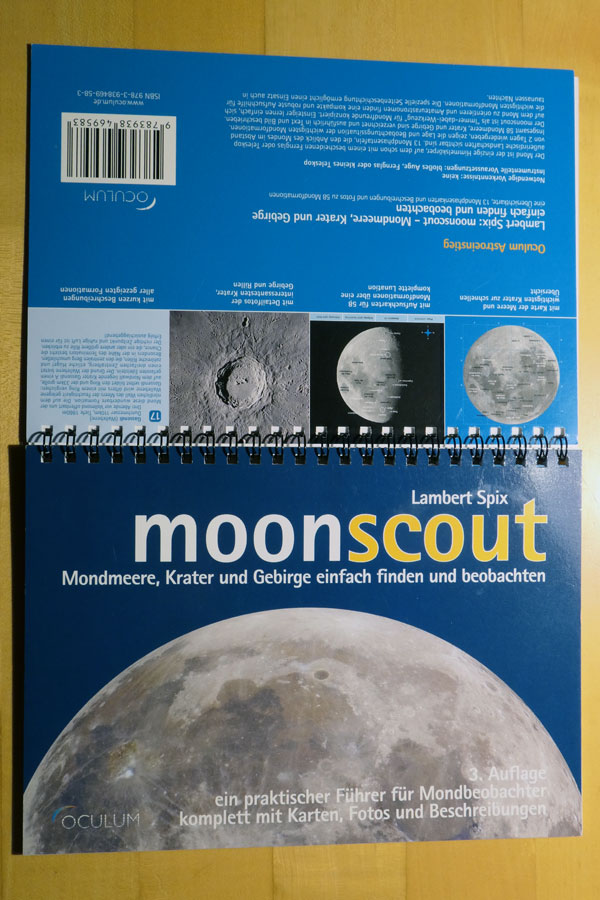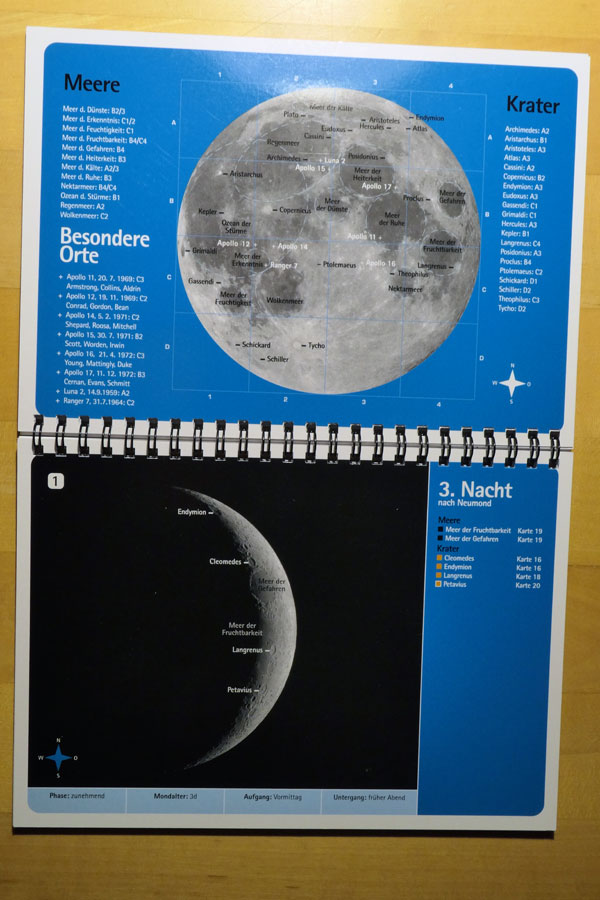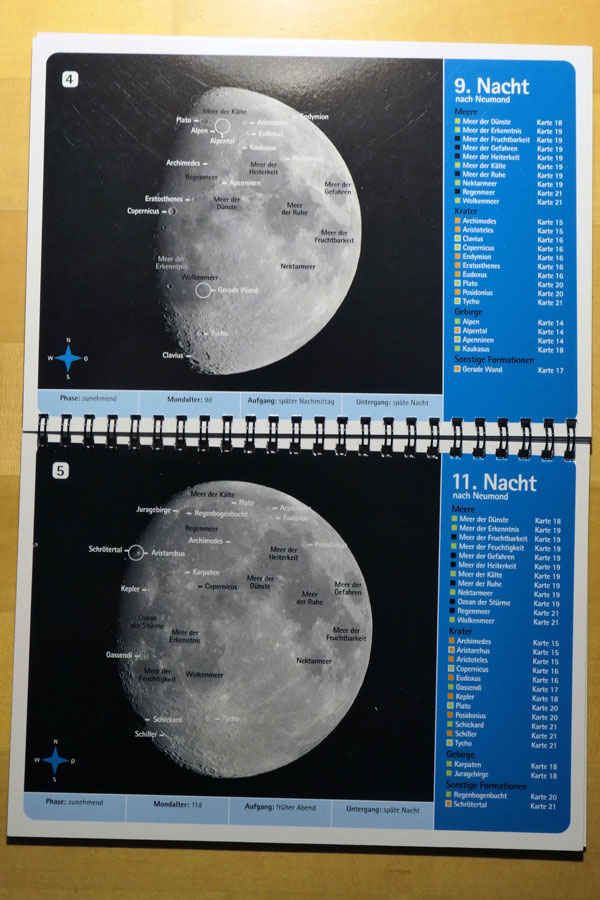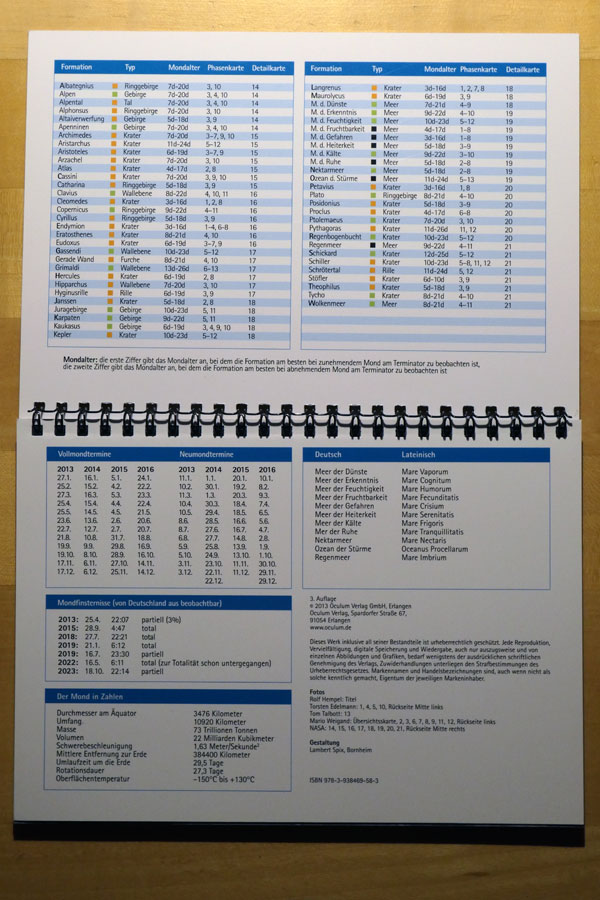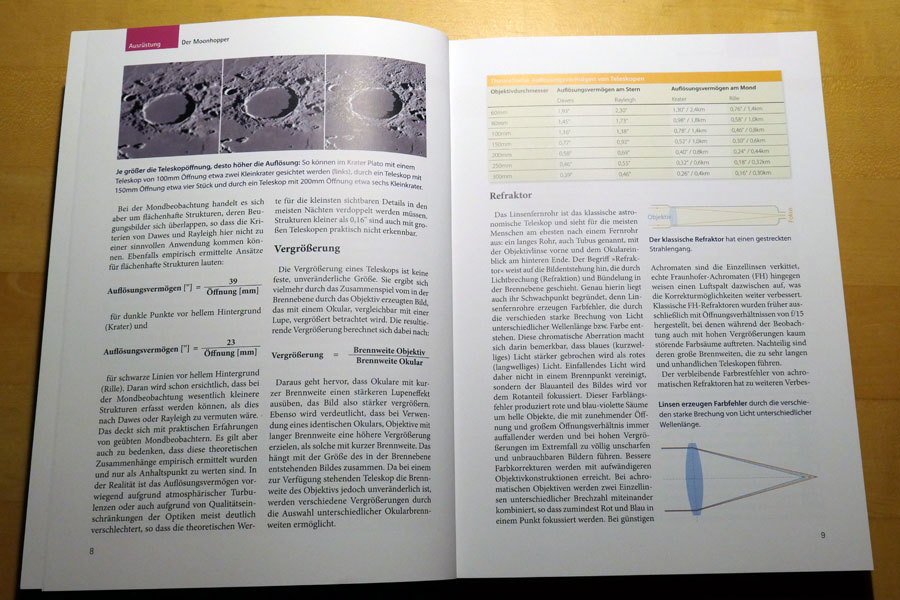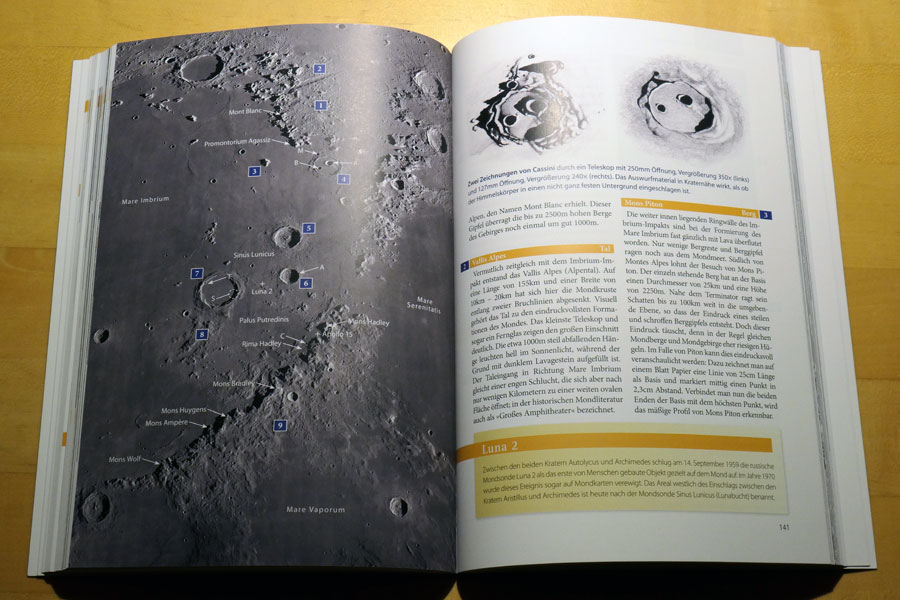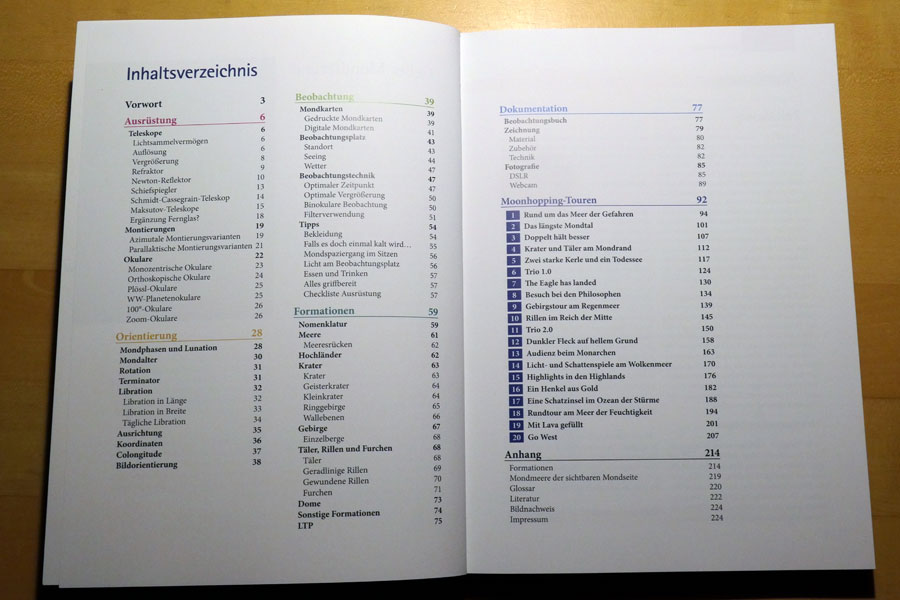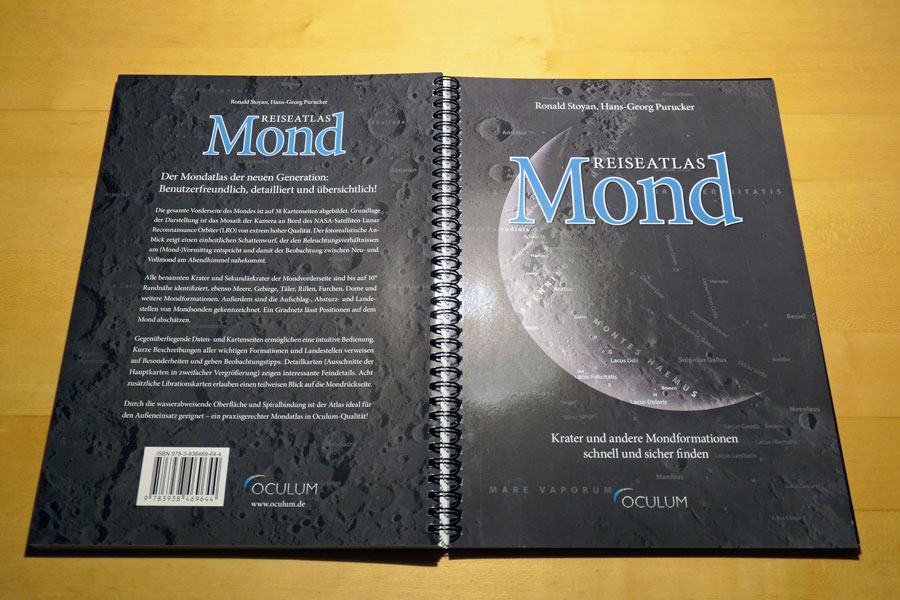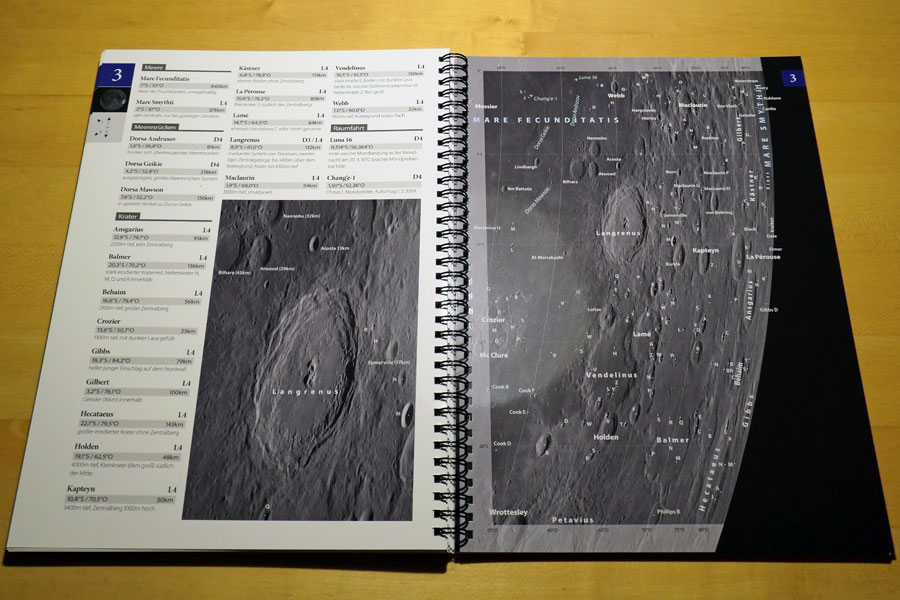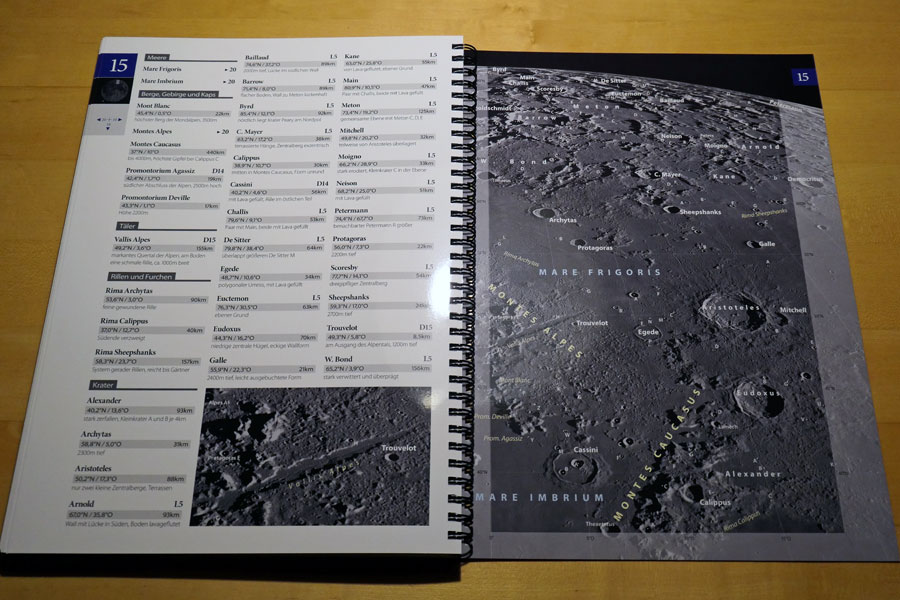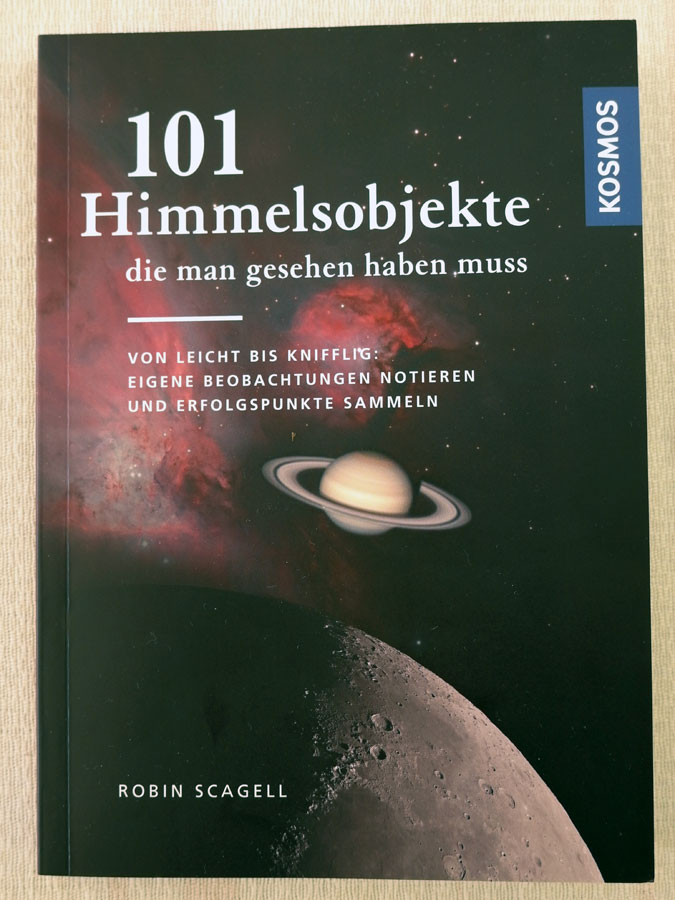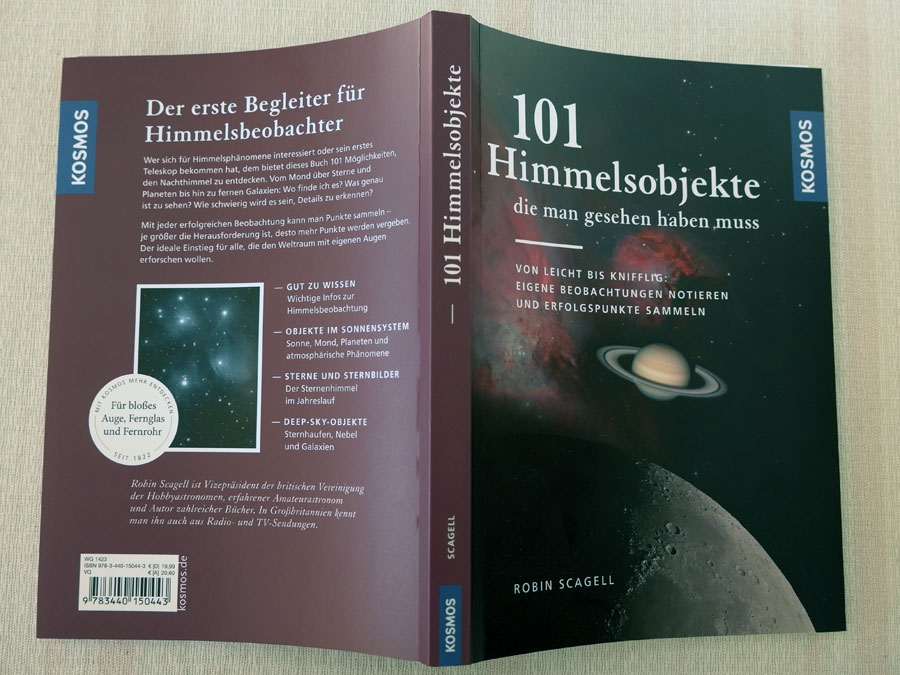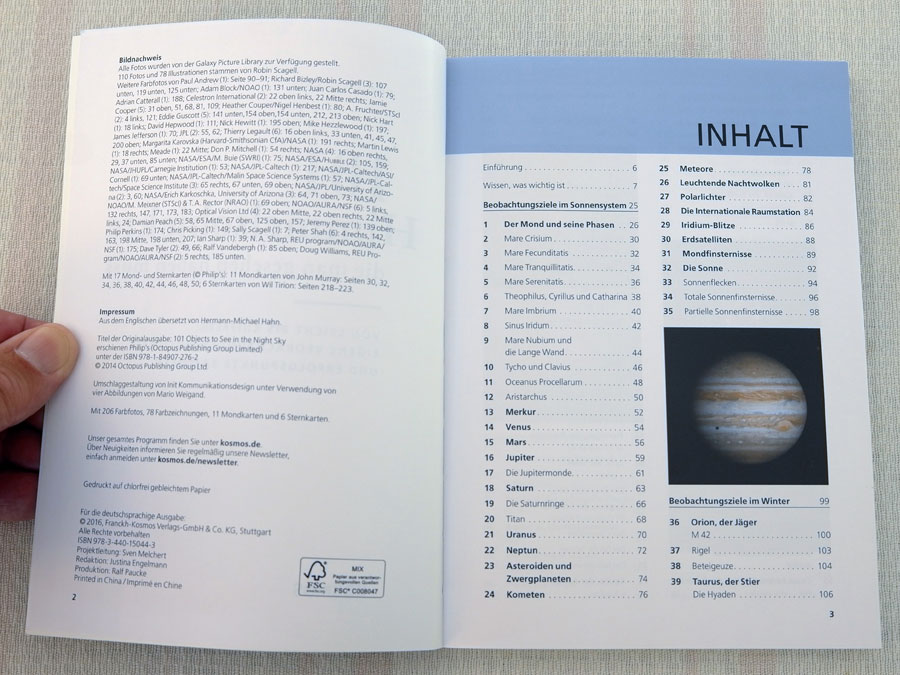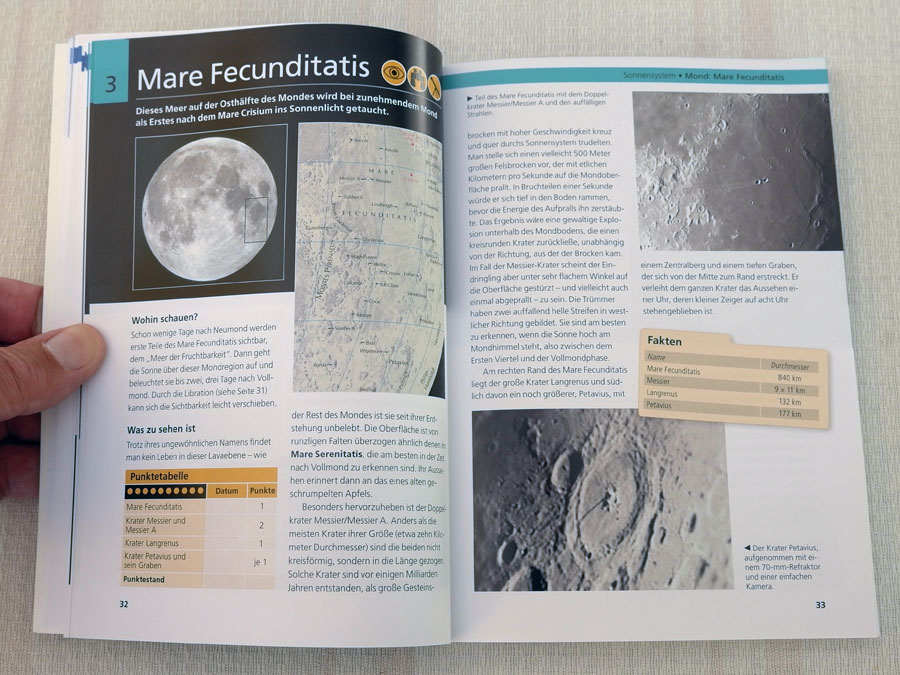Books and Software about the Moon
Books | Software | References
On this page, I present books and software applications about the moon that I use myself. Regrettably, I only own books about the moon in the German language.
Note: See also the pages
- My Astronomy Books
- Books and Software about the Moon (this page)
- Deep Sky Books (here I describe a couple of DSO books for beginners in more detail)
- Astronomy Links
Books
moonscout - Mondmeere, Krater und Gebirge einfach finden und beobachten
This book for beginners (like me) provides an overview of what you can see during the phases of the moon. This is complemented by a list of selected lunar objects in which they are explained in more detail. But whoever wants to know what he or she has photographed on the moon, soon becomes aware of the limitations of this book...
|
Front and back cover |
Sample page (introduction) |
Sample page (overview, 3rd night) |
|
Sample page (9th and 11th night) |
Sample page (details) |
Sample page (lists) |
- Lambert Spix (2013, 3. Auflage). moonscout - Mondmeere, Krater und Gebirge einfach finden und beobachten. Oculum-Verlag. ISBN 978-3-938469-58-3
Der Moonhopper
The book Der Moonhopper by Spix & Gasparini consists of a general section plus 20 moon tours. For me, similar to the Deep Sky Reiseführer, the general section is of great value. The moon tours require more attention to detail, and unfortunately I did not have much time for this yet...
|
Front and back cover |
Sample page (general part) |
|
Sample page (tours) |
Table of contents |
- Lambert Spix & Frank Gasparini (2011, 1. Auflage). Der Moonhopper. Oculum-Verlag. ISBN 978-3-938469-54-5
Reiseatlas Mond
The book Reiseatlas Mond (travel atlas of the moon) by Stoyan and Purucker provides very nice and detailed maps of the moon. These are even more detailed than the maps of the software application Virtual Moon Atlas (see below). However, as nice as the atlas is, I do have two problems with it:
- Often, the map sections are unfavorable for my current needs (larger landscapes are cropped, there is no overlap), so I have to move back and forth between map sheets; since the numbers of the corresponding maps are at the top on the left side, while the map is on the right, I am always searching, first for the numbers (I know, my mistake...), then for the maps...
- Many small craters are not named and for even fewer the diameter is given. Since I am interested in the diameter of small craters, I always have to go to the Virtual Moon Atlas to find them out (which unfortunately has its own quirks, so that I have to restart the program again and again...).
|
Front and back cover pages |
Overview of the maps |
|
Sample page |
Further sample page |
- Ronald Stoyan, Hans-Georg Purucker (2013, 1. Auflage). Reiseatlas Mond. Oculum-Verlag. ISBN 978-3-938469-64-4
101 Objects to See in the Night Sky (101 Himmelsobjekte, die man gesehen haben muss)
Note: Regrettably, this very useful book seems to be out of print - at least, in Germany. I managed however, to buy used copies, because I wanted to give this book away as a gift. I assume that the English version is also out of print, because is has an ASIN number.
The book 101 Objects to See in the Night Sky (German version: 101 Himmelsobjekte, die man gesehen haben muss) by Robin Scagell is primarily directed at young sky observers, but also at older star friends and people who return to the astronomy hobby. It can therefore rightfully be called a "beginner's book," and since I regard myself as a "permanent beginner" I looked into the book and bought it, because it convinced me, although I have already observed a considerable fraction of the objects that are described in the book. Thus, this book serves me as a "reference" for the most important objects in the sky, and as a "reminder" of my own observations. In addition, the book deals with the moon, which I have so far paid little attention to in detail (for example, craters and mares).
|
Table of contents |
Sample double page about the moon |
- Robin Scagell (2014). 101 Objects to See in the Night Sky. Firefly
Books. ASIN: B01FKWD6Y4/B010WEPHRY(out of print)
German Version: Robin Scagell (2016). 101 Himmelsobjekte, die man gesehen haben muss. Kosmos Verlag (vergriffen)
www.kosmos.de/buecher/ratgeber/astronomie/einsteiger/6527/101-himmelsobjekte-die-man-gesehen-haben-muss
Software
Virtual Moon Atlas
The Virtual Moon Atlas is a great piece of open source software, but perhaps a little outdated. And it is not as "attractive" as the Moon Globe app (see below). Nevertheless, it is useful for me, because it provides me with information that Moon Globe does not deliver, especially the names of small caters and information about them (like diameters).
The last update was in 2012 and my Macintosh version does not run at all. Luckily, I can also run Windows on my Macintosh computer and so I use the Windows version. From time to time, however, it freezes on my computer, and I have to restart AtLun, which is the moon atlas.
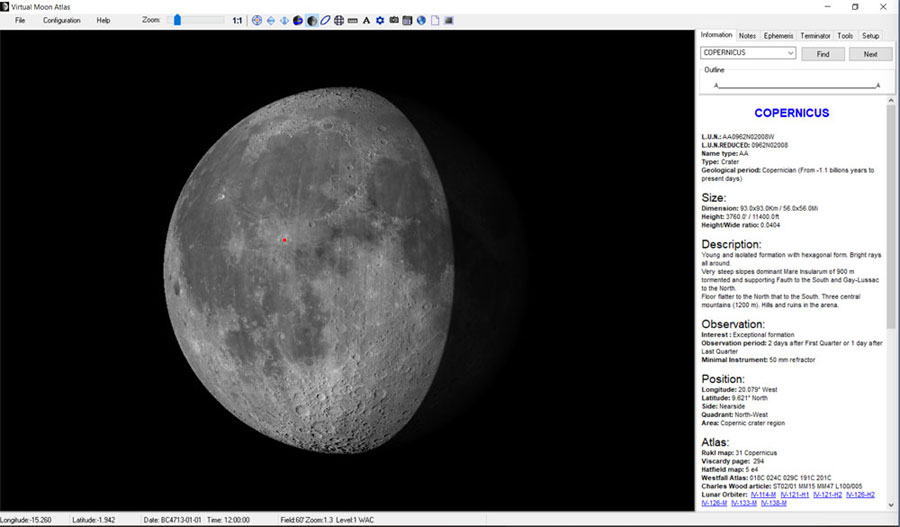 |
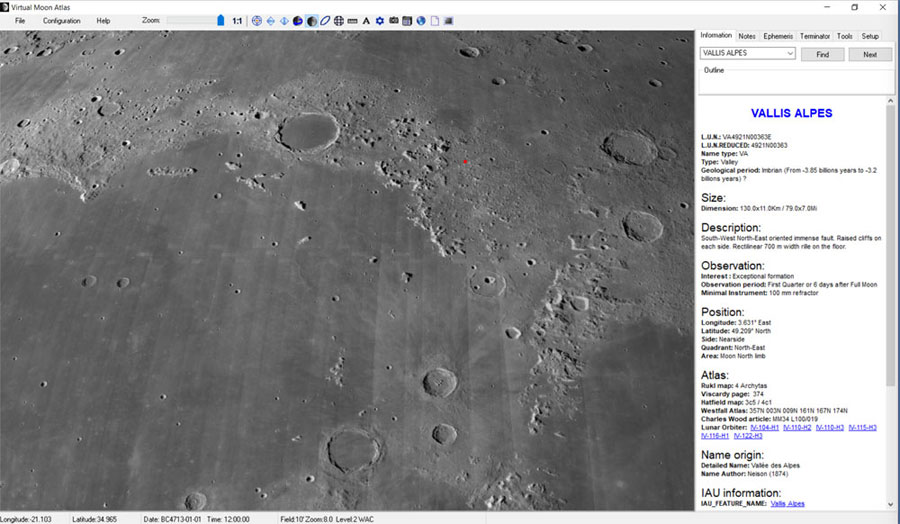 |
|
The whole moon... |
... and a section at maximum magnification |
Moon Globe (HD)
Moon Globe (HD) is a 3D simulation of earth's moon that you can manipulate with the multitouch screen. It features realistic realtime lighting, a catalog of lunar features, and a compass to show the Sun and Moon's position in the sky (from the developer's Website).
I personally think that this is a great piece of software for exploring the moon. I also bought the HD version.
 |
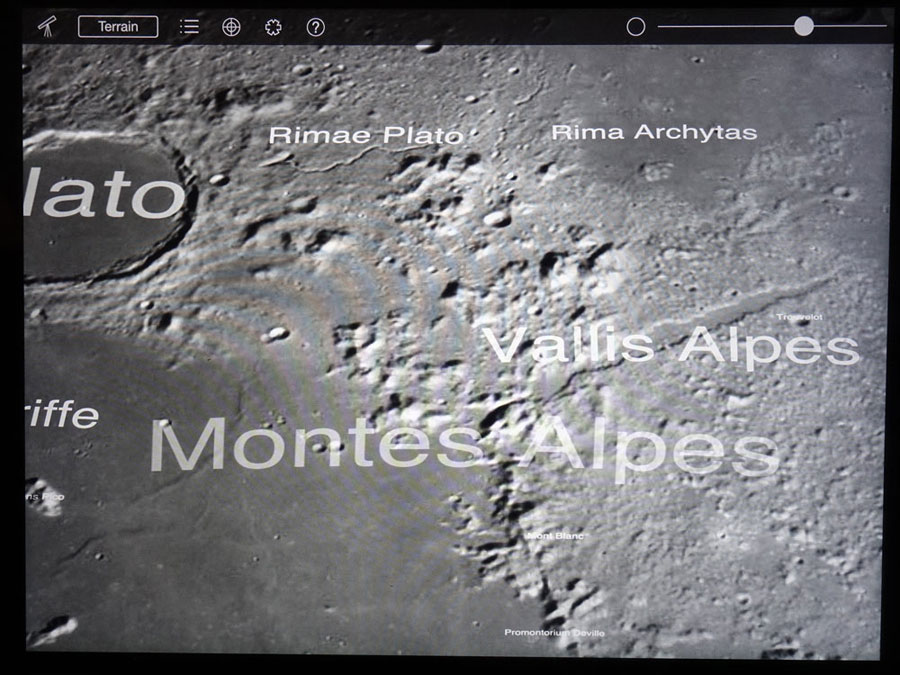 |
|
Lower magnification, similar region as above |
Higher magnification |
|
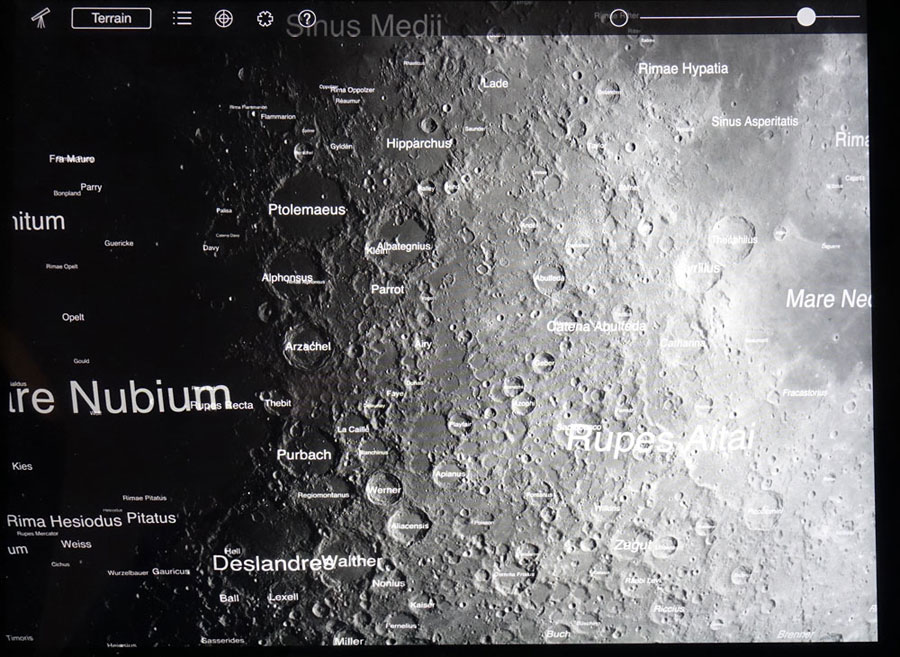 |
||
At the terminator - not as pronounced as in reality... |
||
References
- Mond (Wikipedia): de.wikipedia.org/wiki/Mond
- Moon (Wikipedia): en.wikipedia.org/wiki/Moon
- Lambert Spix (2013, 3. Auflage). moonscout - Mondmeere, Krater und Gebirge einfach finden und beobachten. Oculum-Verlag. ISBN 978-3-938469-58-3
- Lambert Spix & Frank Gasparini (2011, 1. Auflage). Der Moonhopper. Oculum-Verlag. ISBN 978-3-938469-54-5
- Ronald Stoyan, Hans-Georg Purucker (2013, 1. Auflage). Reiseatlas Mond. Oculum-Verlag. ISBN 978-3-938469-64-4
- Robin Scagell (2014). 101 Objects to See in the Night Sky. Firefly
Books. ASIN: B01FKWD6Y4/B010WEPHRY(out of print)
Robin Scagell (2016). 101 Himmelsobjekte, die man gesehen haben muss, Kosmos Verlag (out of print)
www.kosmos.de/buecher/ratgeber/astronomie/einsteiger/6527/101-himmelsobjekte-die-man-gesehen-haben-muss - Virtual Moon Atlas: ap-i.net/avl/en/start
- Moon Globe (HD) (midnightmartian.com; does not lead to the correct location): itunes.apple.com/us/app/moon-globe/id333180321?mt=8 - itunes.apple.com/us/app/moon-globe-hd/id376000038?mt=8
| 18.04.2023 |
